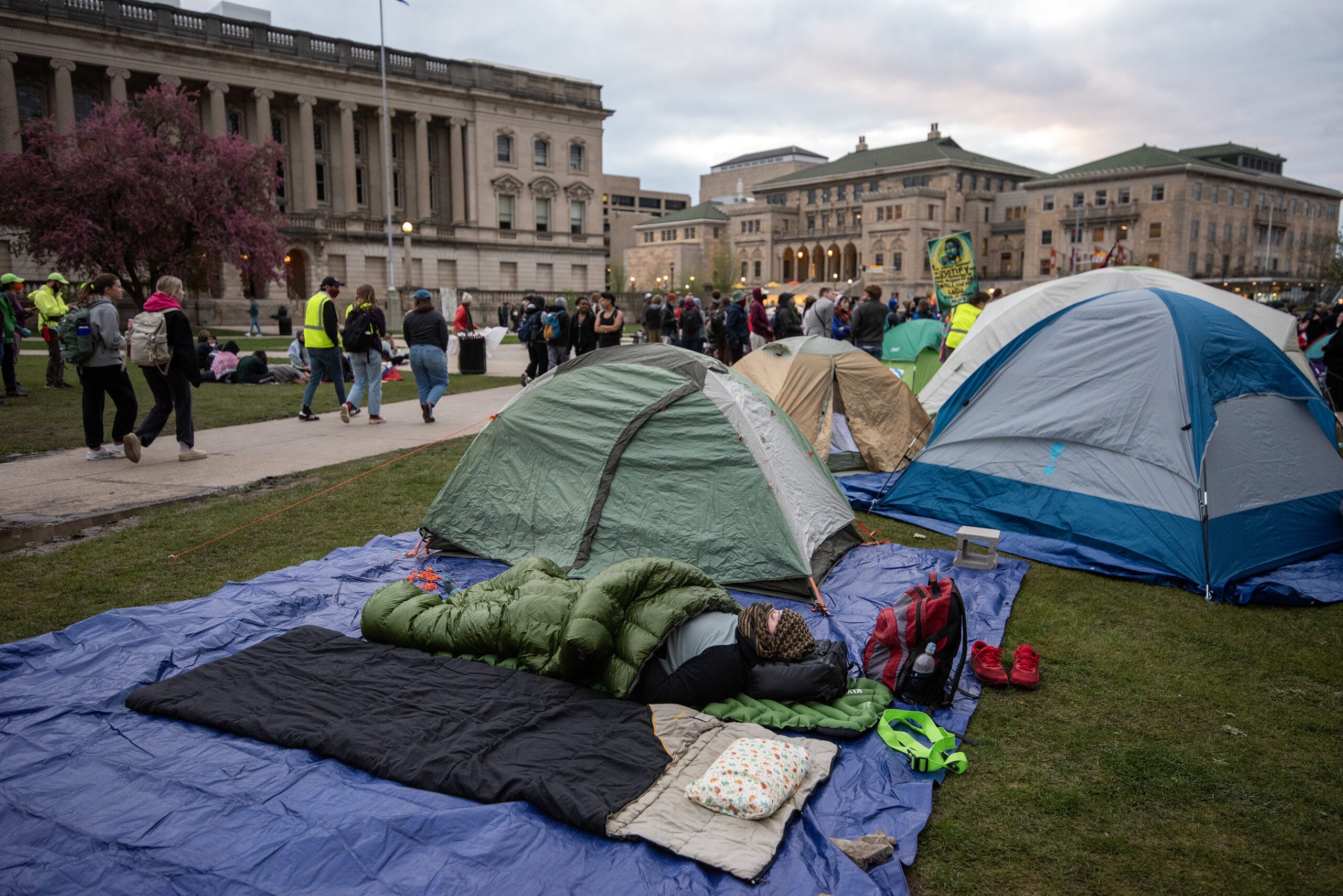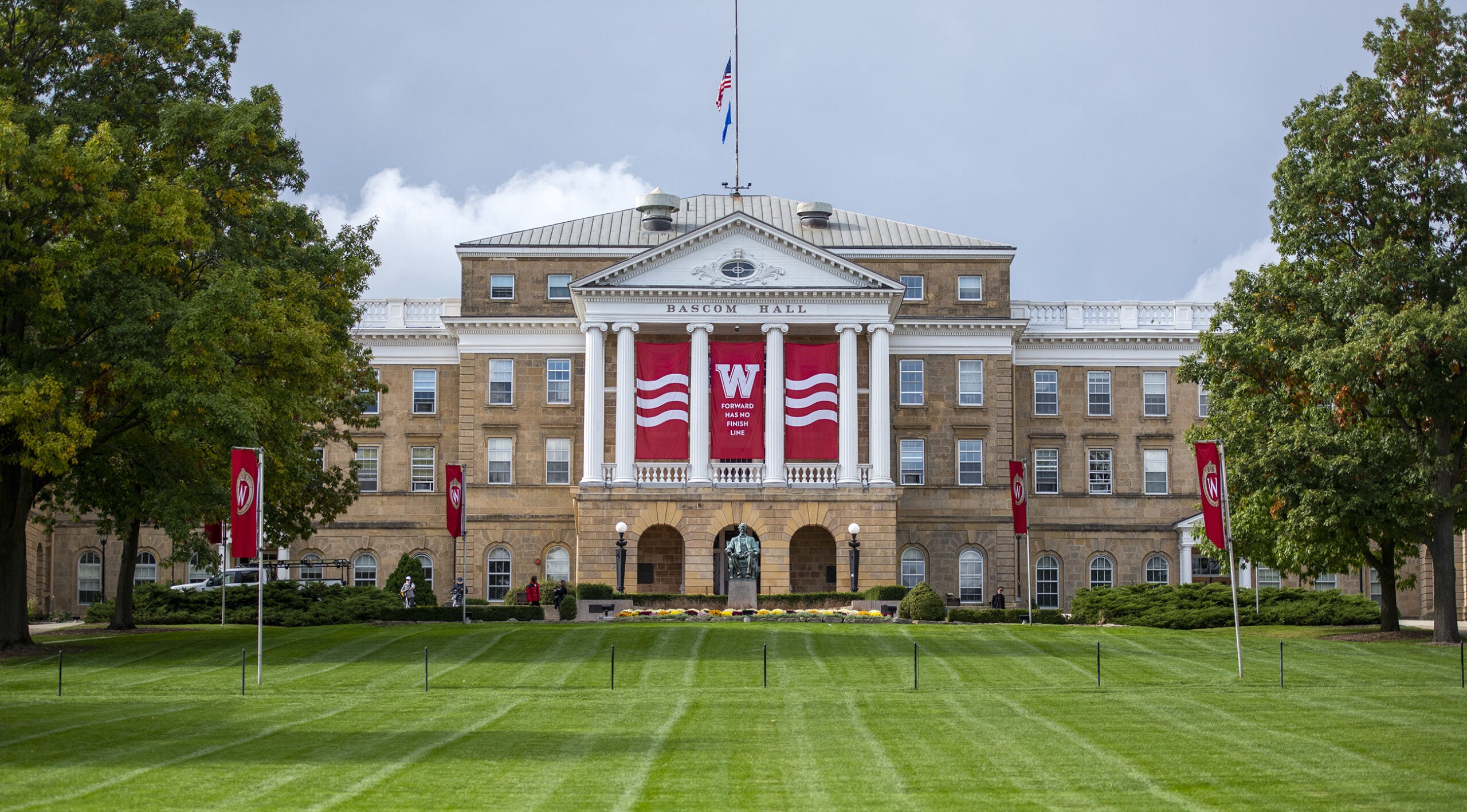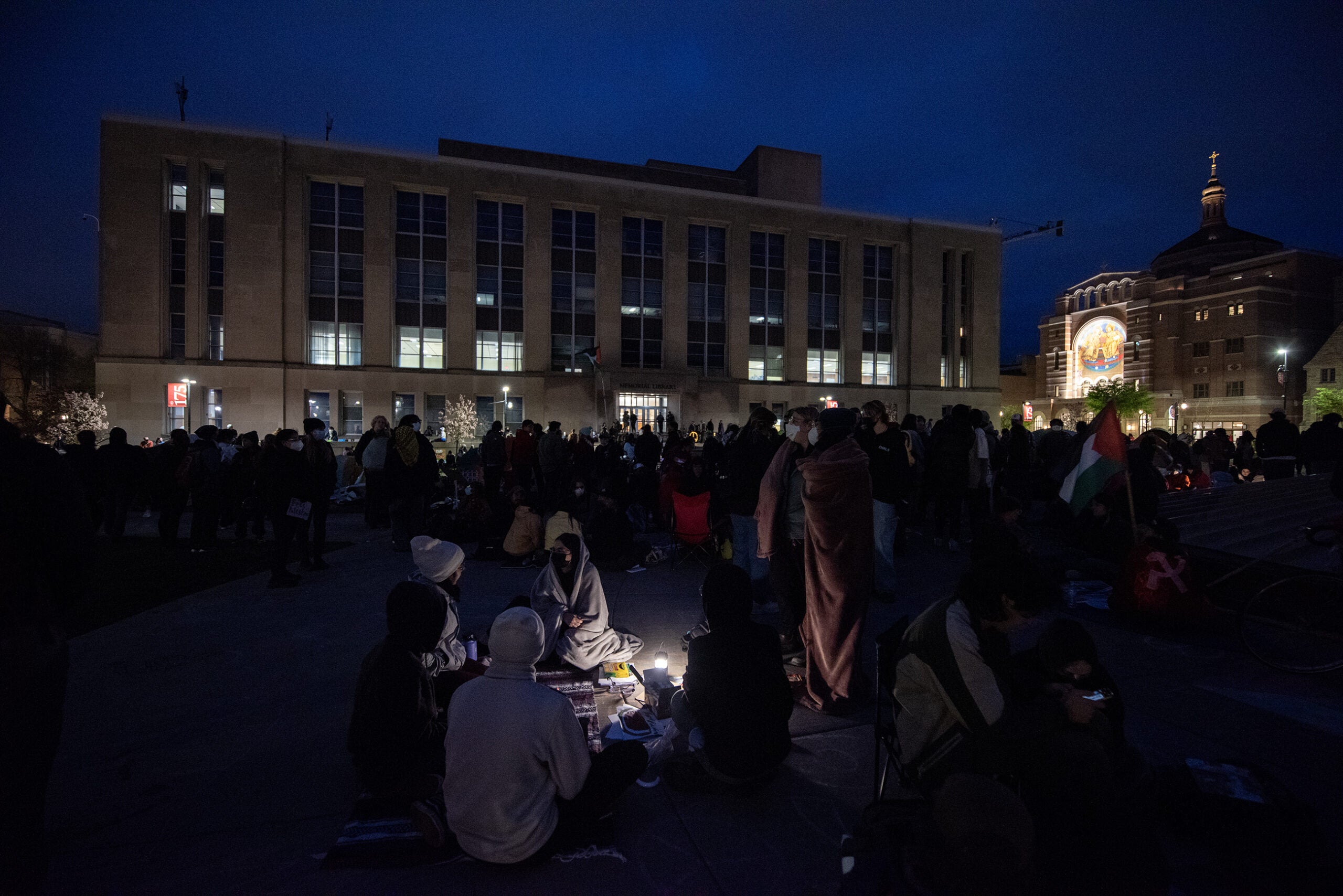It’s been one year since Universities of Wisconsin students in Madison and Milwaukee set up encampments to demand their campuses divest from Israel and protest the war in Gaza.
The protesters marched, held teach-ins — and at UW-Madison, clashed with police. In the months since, some students have faced disciplinary action.
With brief pauses, the deadly war in Gaza has continued. And the Trump administration has condemned universities for how they handled last year’s protests. In March, UW-Madison was one of 60 higher education institutions warned about a potential loss of federal funding if they fail to protect Jewish students.
News with a little more humanity
WPR’s “Wisconsin Today” newsletter keeps you connected to the state you love without feeling overwhelmed. No paywall. No agenda. No corporate filter.
There have also been some high profile cases of the Trump administration pursuing international students who participated in last year’s pro-Palestinian protests.
UW student protestors said these actions have a chilling effect on speech, and show their encampments made a difference.
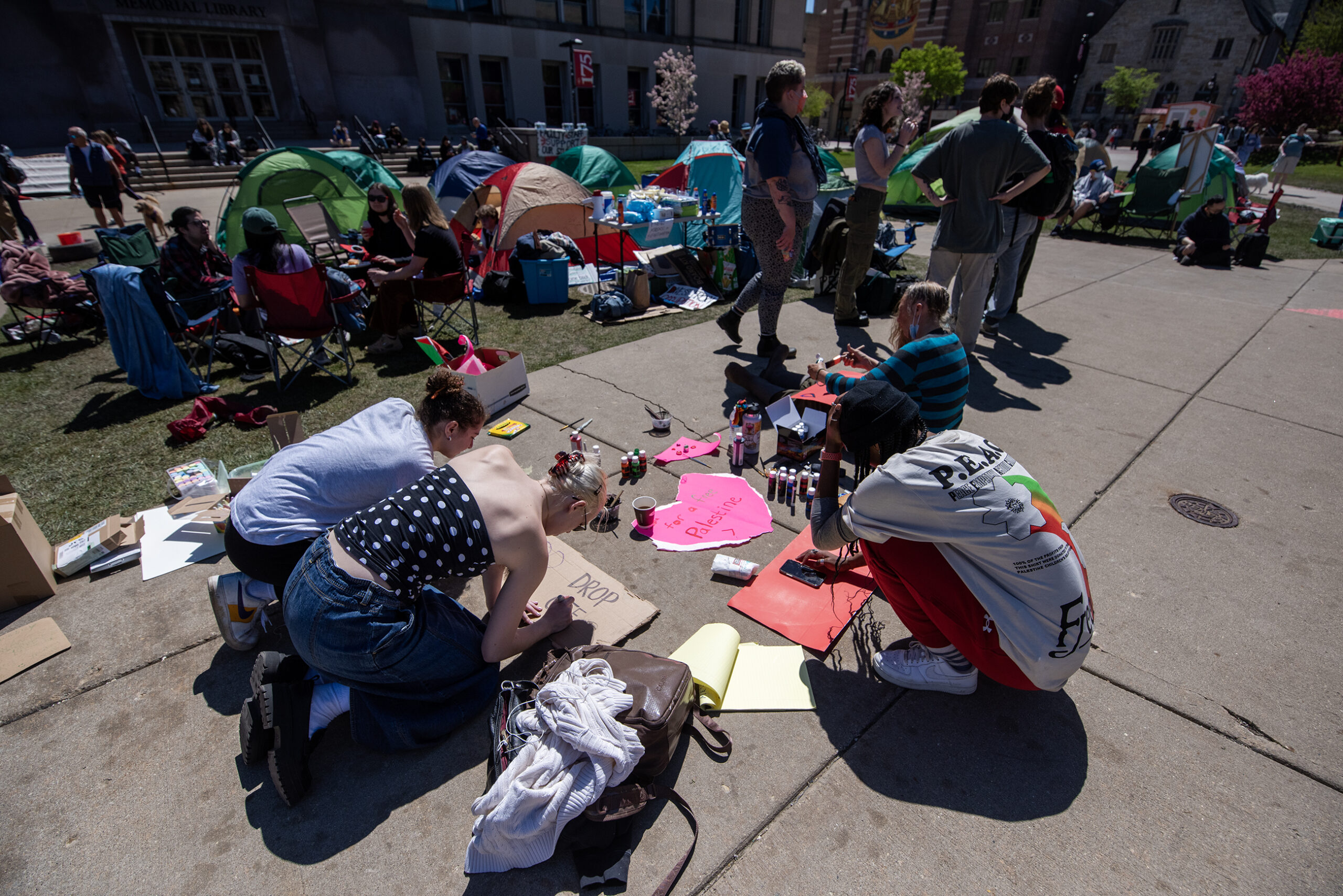
Kareem Mayouf is a recent UW-Madison graduate who participated in last year’s encampment.
“I feel like we’ve been vindicated, in a way, by the sweeping repression that we’re seeing,” Mayouf said. “Because institutions of power feel threatened by us coming together as a community and expressing our shared condemnation of genocide and apartheid in the occupation of Palestine.”
Mayouf is Palestinian, and says last year’s encampment was an important show of solidarity from his community.
“As a Palestinian, it feels like our voices are often marginalized,” Mayouf said. “Seeing all the students on Library Mall in the encampment, it really made me feel proud and supported.”
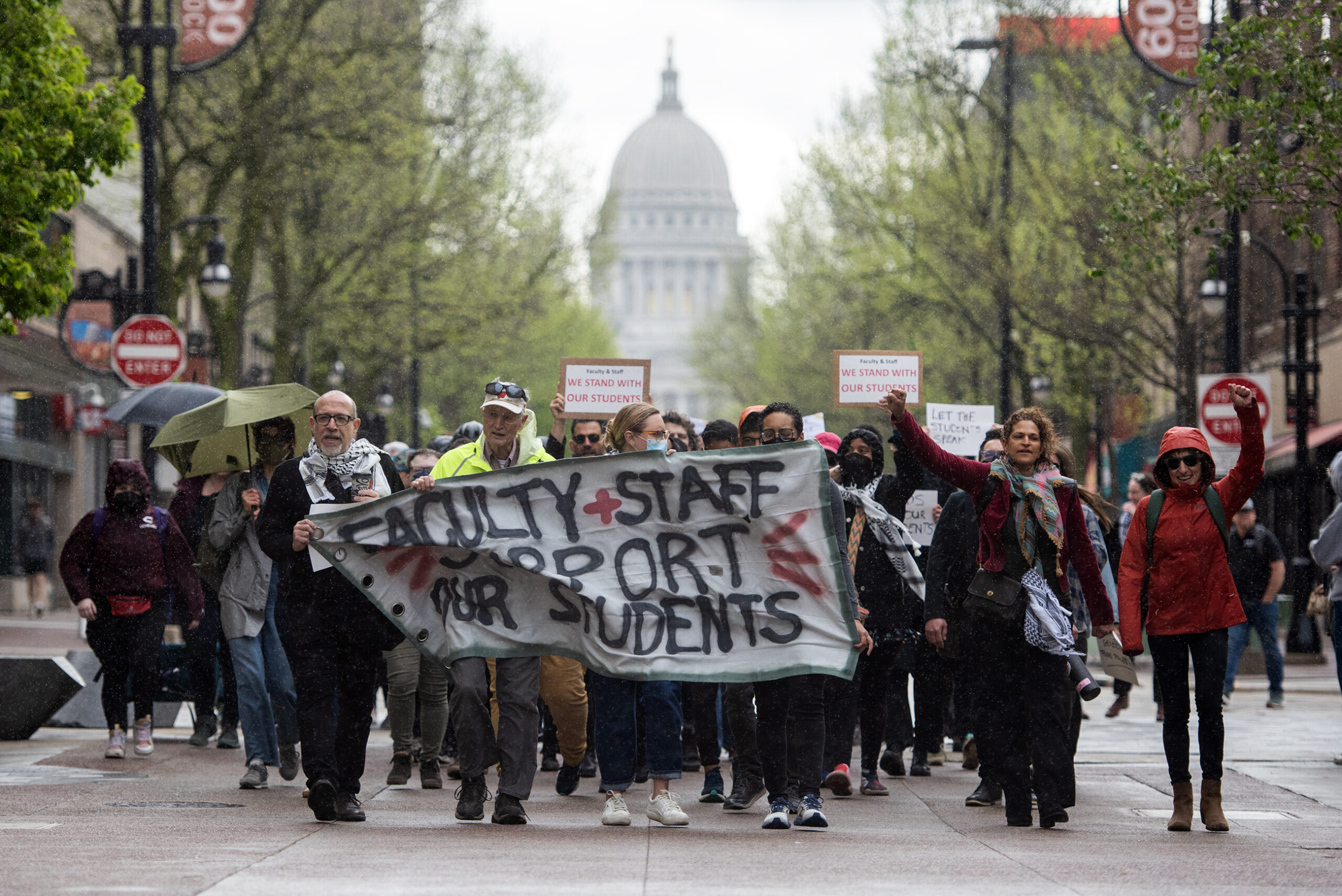
Douglas McLeod is a journalism and mass communication professor at UW-Madison. He said the encampments succeed in bringing local attention to an international conflict.
“Those encampments are really good example of non-violent protest behavior that gets the attention of the media and gets an issue on the agenda,” McLeod said. “A good role model, in some sense, whether you’re a left wing, right wing, whether you’re on the Palestinian side or the Israeli side of this conflict.”
He said some educators on campus are worried about the safety of their international students following recent federal visa terminations.
“Tolerance for protest is important,” McLeod said. “If we become intolerant of protest, not only is that a sign that democracy is potentially in jeopardy, but it’s also cutting off an avenue that citizens can use to bring about change.”
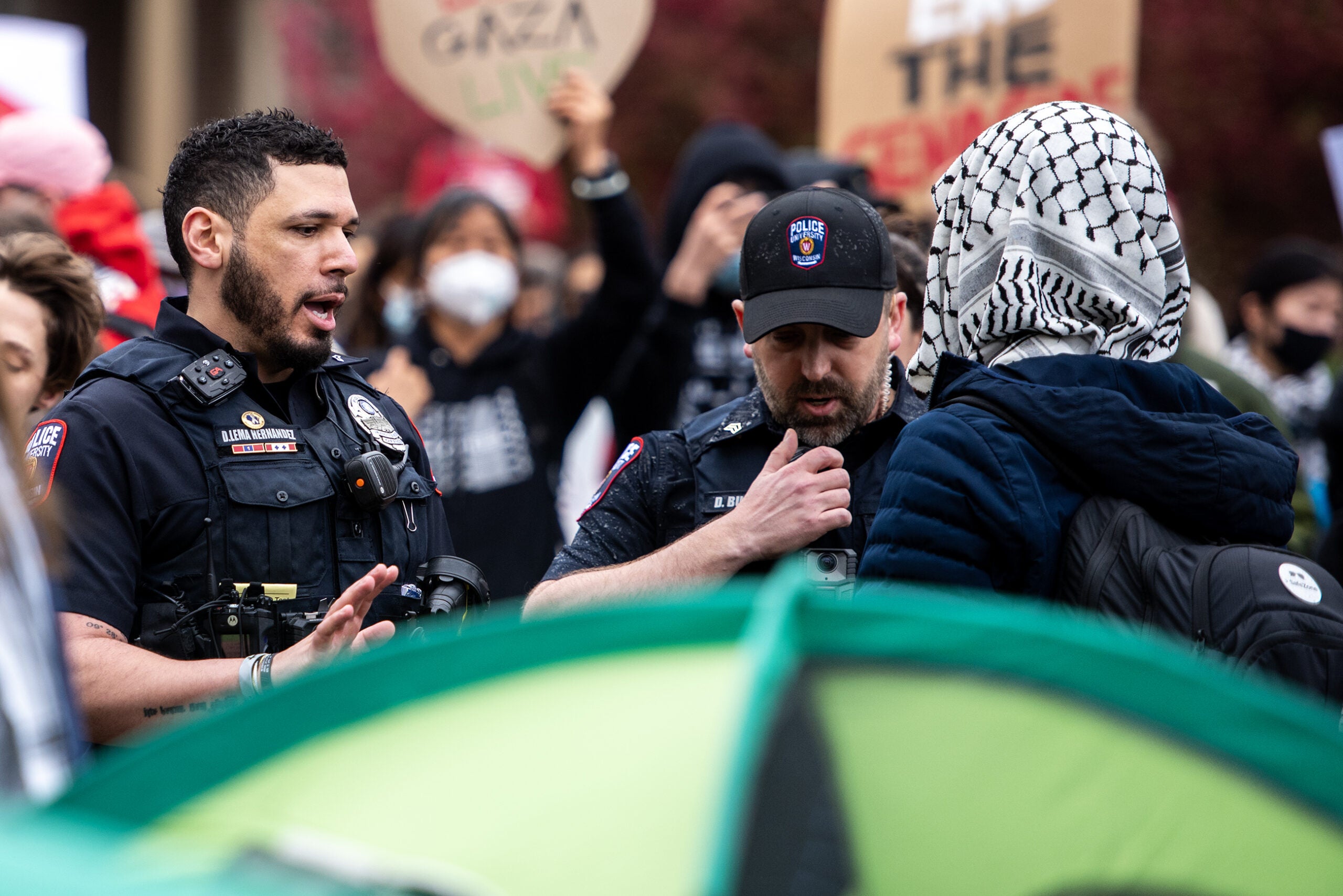
Dahlia Saba, a UW-Madison graduate student and member of Students for Justice in Palestine, said the university used disciplinary action to restrict student speech following the encampment.
She hopes the school will pivot to “fight back against this federal overreach” and further support its international students.
“I think that this moment that we’re currently in — where we see attacks from the federal government on universities — gives the university another chance to change its stance,” Saba said.
Patricia Fish was at the encampment at the UW-Milwaukee.
“As students, we knew starting the encampment … we knew what the risks were, but those risks are nothing compared to what’s actually happening in Palestine,” said Fish, who leads the group Students for a Democratic Society.
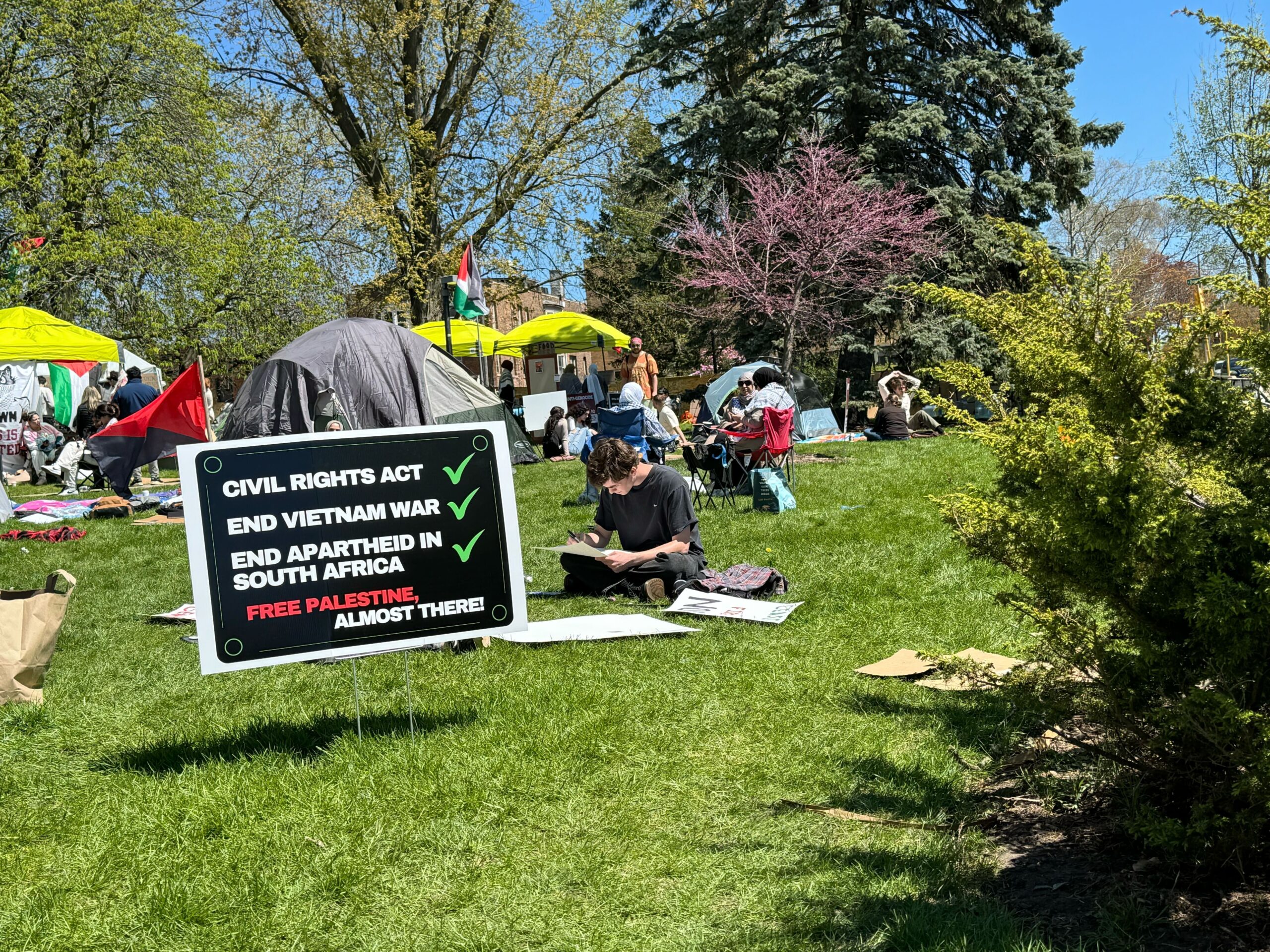
Fish said the encampment brought UW-Milwaukee students together with the broader Milwaukee community.
Their organization is continuing to protest federal actions, including recent international student visa terminations. Many terminations have since been reversed, but Fish worries that could change again in a moment.
“We need to continue to mobilize, and we need to continue to fight and continue to show up,” Fish said.
Wisconsin Public Radio, © Copyright 2026, Board of Regents of the University of Wisconsin System and Wisconsin Educational Communications Board.

